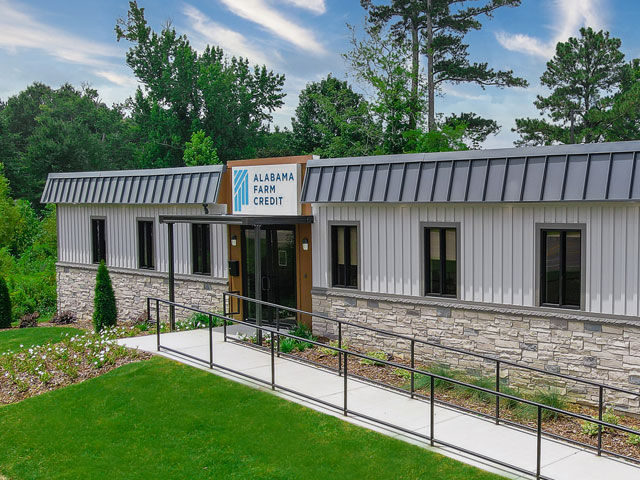Top 7 Uses For Modular Buildings

The versatility of modular construction continues to revolutionize how organizations approach their building needs. From education to healthcare, these adaptable structures offer swift, cost-effective solutions across numerous industries. Let’s explore the most common applications where modular buildings are making a significant impact.
1. Office Buildings
Office buildings represented 18% of the permanent modular construction market in 2024, making it one of the most common modular uses in the world. Businesses in service and corporate sectors are turning to modular buildings to expand office spaces quickly, efficiently and affordably.
Modern businesses appreciate modular office buildings for their quick installation and professional appearance. Modular structures can be tailored to reflect a brand’s identity and are relocatable, making them perfect for temporary retail spaces or growing businesses needing flexibility. These structures can be customized with open-plan layouts, private offices, conference rooms, and break areas. The rapid construction timeline also means minimal disruption to business operations.
2. Education
Another one of the most common uses for modular buildings is in education, which accounted for 15% of new permanent modular projects in 2024. Schools, universities, and training centers increasingly use modular classrooms to address overcrowding, meet enrollment surges, or add specialized spaces like science labs or libraries.
These buildings can be rapidly deployed between terms, feature modern learning technologies, and adapt to changing educational needs. Quick installation minimizes disruption to the academic year, and buildings can be customized with smart technologies and energy-efficient designs to create a modern learning environment.
From temporary classroom spaces to permanent campus additions, modular construction offers flexibility without compromising quality.
3. Healthcare
Healthcare accounted for 6% of the permanent modular construction market utilization in 2024. From urgent care clinics to diagnostic labs, modular buildings are ideal for healthcare providers needing rapid, high-quality medical facilities.
With modular construction, quality structures can be built to meet strict healthcare standards while significantly reducing construction time. Customization allows for specialized features like patient rooms, sterile labs, and equipment storage. Medical clinics, diagnostic centers, and treatment facilities can be built to exact specifications, complete with specialized ventilation systems and medical gas lines.
4. Industrial and Manufacturing Plants
Durability and scalability make modular buildings perfect for industrial applications. Industrial sites use modular solutions for everything from administrative offices to break rooms, quality control centers, security stations and storage facilities. That’s because they’re designed to withstand demanding environments and can be quickly adapted to fit evolving needs. Versatile structures like raised mezzanines and in-plant offices offer easy flexibility and fit into a variety of settings quickly and affordably, then are easily reused or relocated when needed.
With specialty features like load-bearing roofs and suspended acoustical ceilings, modular buildings can be designed to withstand industrial environments while providing comfortable, climate-controlled spaces for workers and equipment.
5. Retail Spaces
From pop-up shops to permanent stores, modular buildings offer retailers a quick path to market. These structures can be branded inside and out, and their flexible design allows for future modifications as business needs change. Custom features like built-in shelves and storage, integrated network connectivity and advanced security systems create quality retail spaces that meet building codes while protecting staff and stock and streamlining operations.
6. Disaster Relief and Emergency Housing
When disaster strikes, modular buildings provide swift solutions for emergency operations centers, temporary housing, medical facilities and storm recovery buildings.
Speed and portability are key in emergency situations. Modular buildings can be delivered and assembled quickly, providing immediate relief while maintaining quality and functionality. These structures can be built to withstand harsh elements and provide long-lasting durability in times of crisis. They’re also cost-efficient and eco-friendly, fitting into tight budgets and minimizing further environmental impact while providing support to disaster zones.
7. Construction Sites
Construction companies rely on modular buildings for on-site offices, meeting rooms, security stations and more. Scalehouses and guard houses are quickly and affordably installed to monitor site operations, enhance security, provide customer service and streamline transportation. These units can be easily relocated as projects complete and new ones begin.
Explore Modular Solutions for Your Industry
Whether you’re looking to expand your business, support disaster relief, or build a state-of-the-art classroom, modular buildings offer endless possibilities. At Quick Buildings Modular, we specialize in creating customizable solutions tailored to your unique needs.
Browse our modular building collections today and contact our team to discuss your next project. Let’s bring your vision to life with innovative modular construction.
Related Reading:
Custom Modular Buildings Fit the Budget and Timeline for these Industries and Organizations
